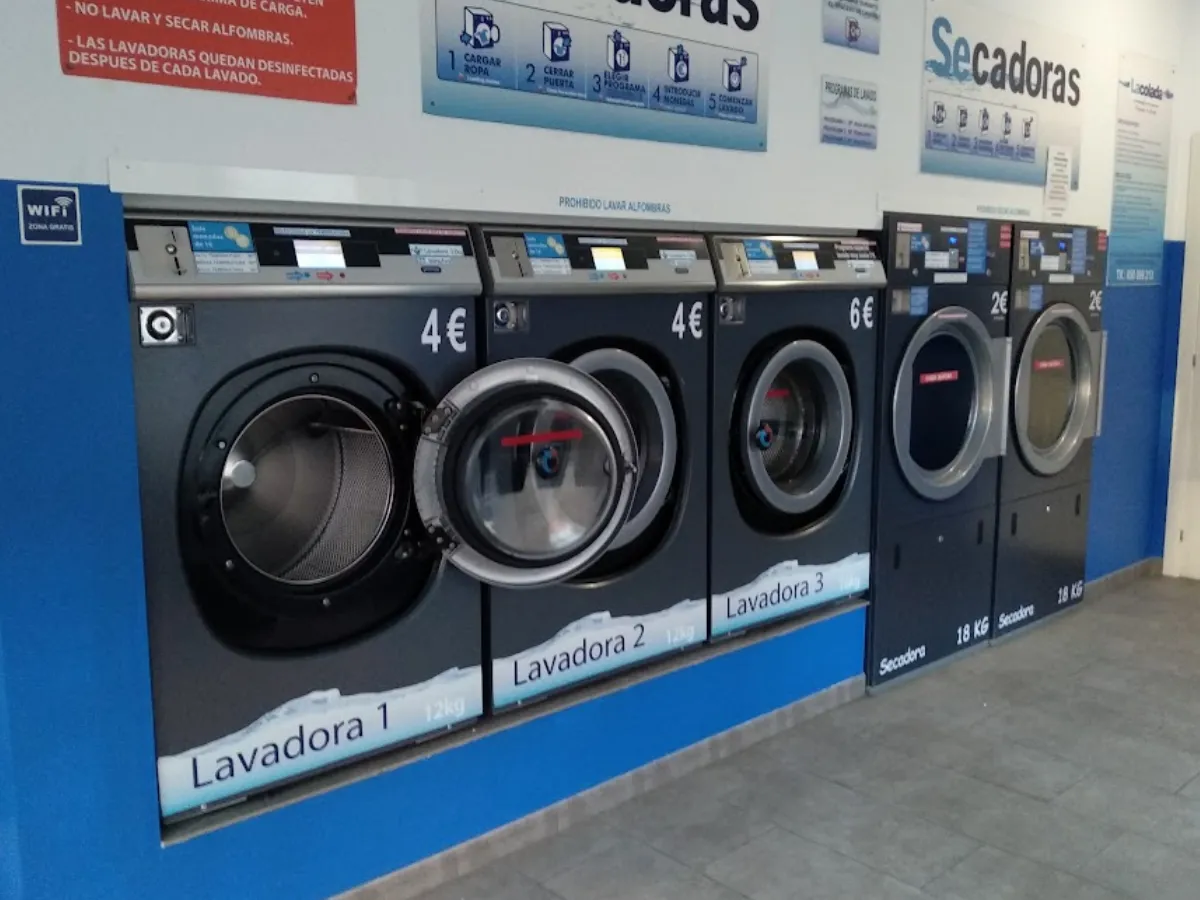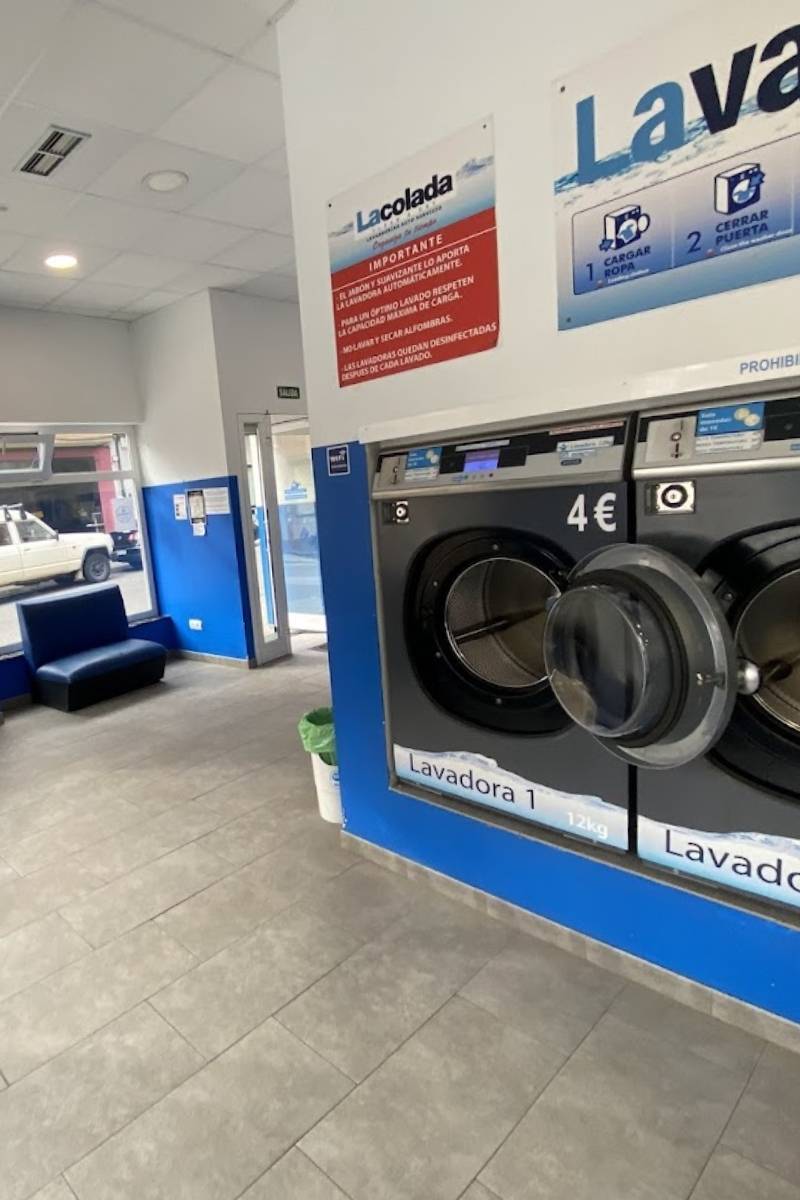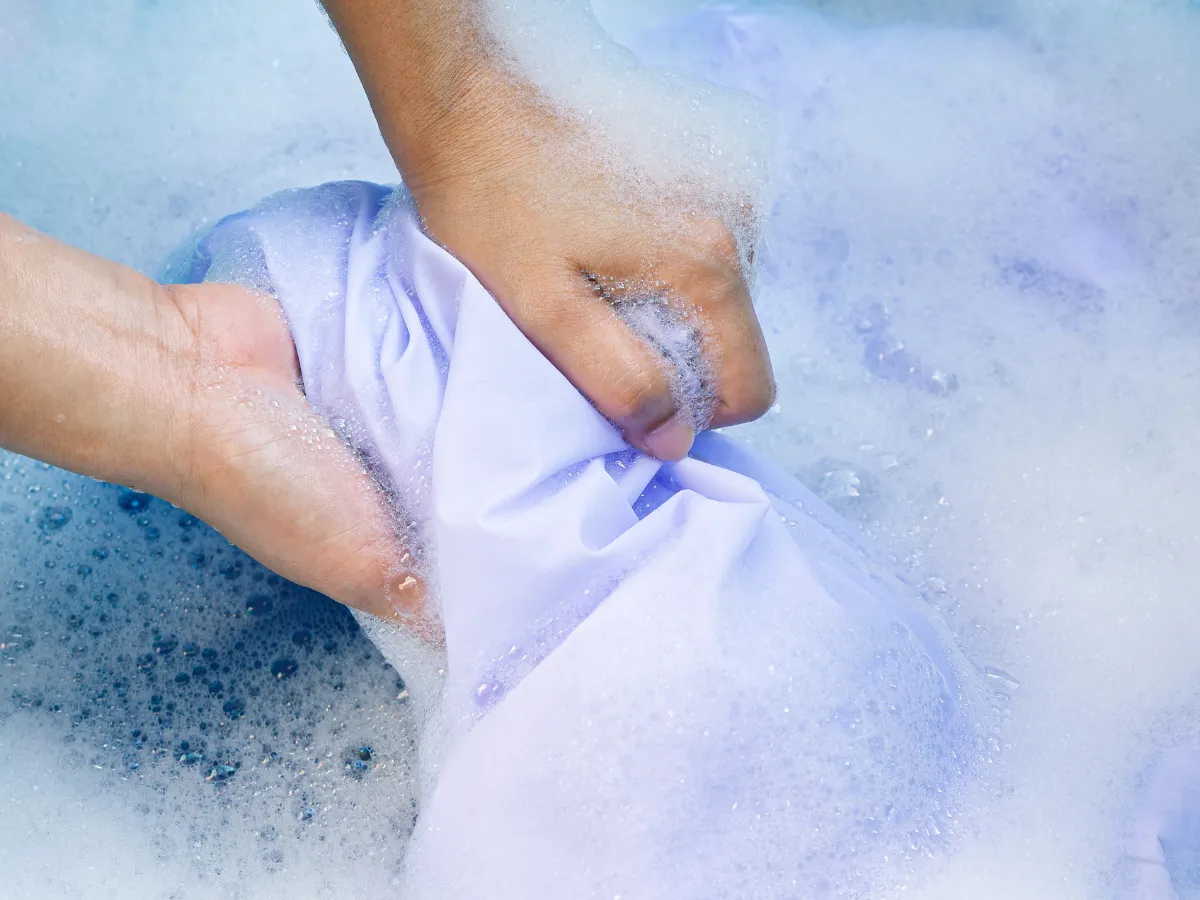Beyond Washing and Drying: Discover All the Services of a Laundromat

Doing laundry is an unavoidable household chore, but we don't always have the time, space, or adequate equipment at home to do it efficiently. This is where laundromats come in, establishments designed to make this task easier for us. But, what services does a laundromat offer exactly? Are they all the same? What are the advantages of opting for a self-service model?
If you've ever wondered what to expect when you walk through the door of a laundromat or if you're considering using one for the first time, this guide is for you. We'll explore the different types of laundromats, the basic and specialized services they offer, and highlight why self-service laundromats like LaColada in Ponferrada have become such a popular and convenient option.
Types of Laundromats: Not All Are Created Equal
Before detailing the services, it's important to distinguish between the main types of establishments dedicated to clothing care:
- Traditional Laundromats / Dry Cleaners: These are the "old-fashioned" businesses. They offer full service: you drop off your dirty clothes, and they handle the entire process (washing, drying, ironing, folding). They often specialize in dry cleaning and treating delicate or special garments (suits, evening gowns, etc.).
- Self-Service Laundromats (Laundromats): Like LaColada, these locations provide customers with industrial washers and dryers of various capacities so users can do the washing and drying themselves. They typically stand out for speed, price, and flexible hours.
- Industrial Laundries: These are large facilities that usually do not serve the general public but provide services to businesses like hotels, hospitals, restaurants, etc., handling large volumes of bedding, tablecloths, or uniforms.
In this article, we will focus mainly on the services you can find in laundromats aimed at the general public: traditional/dry cleaners and self-service ones.
Essential Services: The Heart of Every Laundromat
Regardless of the type, there are basic services that define a laundromat:
- Washing: This is the fundamental service. Laundromats have machines of different capacities.
- Water Washing: The most common method, using water and detergents. Professional machines allow adjusting temperatures and programs according to the fabric. Learning how to properly wash white clothes or dark clothes is key.
- Dry Cleaning: A specialized process using chemical solvents instead of water. Indispensable for delicate garments that cannot get wet. Typically offered at dry cleaners. Discover how dry cleaning works.
- Drying: After washing, drying is essential. Industrial dryers are much faster and more efficient than domestic ones. They allow selecting different temperatures to protect fabrics. Did you know that not controlling the temperature is one reason why the dryer can shrink clothes?

Complementary Services (More Common in Dry Cleaners)
Traditional laundromats often expand their offerings with value-added services:
- Professional Ironing: They leave your shirts, pants, and other garments wrinkle-free using industrial presses and irons.
- Folding and Packaging: They return your clothes perfectly folded and often protected in plastic bags.
- Cleaning Special Items: Specific treatment for carpets, curtains, wedding dresses, etc.
- Sewing Alterations: Some offer basic repair services like sewing buttons, hemming pants, etc.
- Pickup and Delivery: For added convenience, although it usually increases the cost.
The Rise of Self-Service: Key Advantages and Services
Self-service laundromats have gained enormous popularity by offering a practical, fast, and economical solution. Their services focus on the efficiency of washing and drying performed by the customer:
- Large Capacity Machines: This is one of their biggest advantages. They have much larger washers and dryers than domestic ones (12kg, 16kg, 18kg or more). This allows for:
- Washing large weekly loads of laundry all at once.
- Washing bulky items impossible to fit in a standard washer: comforters, blankets, curtains, sofa covers, etc.
- Extreme Speed: Thanks to the industrial power of the machines, a wash cycle usually lasts about 30 minutes, and drying another 20-30 minutes. You can have your entire laundry done in about an hour!
- Cost-Effectiveness: They are significantly cheaper than traditional dry cleaners. Additionally, many include products (detergent, softener, active oxygen) in the price of the wash, representing further savings. Also consider the savings on your home electricity bill and water.
- Professional Results: Industrial machines, combined with professional quality products (often automatically dosed), ensure a deep clean and efficient drying that takes care of clothes. Active oxygen, for example, helps to disinfect clothes and remove tough stains.
- Flexibility and Comfort: They usually have very long operating hours (many open every day of the year, mornings and evenings) and are located in accessible areas. They offer easy payment systems (coins, cards, apps) and pleasant waiting areas.
- Guaranteed Hygiene: High-temperature wash cycles and the use of disinfecting products ensure the elimination of bacteria and mites, which is especially important for people with allergies or when washing baby clothes. If mites concern you, read about how to eliminate mites.
Also, if after washing you notice marks or residues, although the products are usually high quality, you can always review our tips on how to remove tough stains in case any persistent residue needs extra treatment at home.
Who Are Laundry Services Ideal For?
Laundromats, especially self-service ones, meet the needs of a wide variety of people:
- Students or people living in small apartments without space for a washer/dryer.
- Large families needing to wash large quantities of clothes quickly.
- People with little time who want to tackle the weekly laundry in an hour.
- Those needing to wash bulky items (comforters, blankets...).
- Travelers and tourists needing to wash clothes during their stay. Pilgrims on the Camino de Santiago, for example, find self-service laundromats a vital solution.
- Anyone looking to save on home electricity and water bills.
Frequently Asked Questions about Laundry Services
What services does a laundromat offer?
Mainly washing and drying. Dry cleaners add dry cleaning, ironing, etc. Self-service focuses on fast, economical washing and drying with large-capacity machines.
What activities are performed in a laundromat?
Washing (with water or solvents), drying, and in traditional models, ironing, folding, and packaging. In self-service, the customer operates the machines.
What does a laundromat include?
Washers, dryers, payment systems, and often detergents/softeners. May include a waiting area, WiFi, etc.
What needs does a laundromat satisfy?
Efficient clothes cleaning, especially for those without home equipment, needing to wash large volumes or bulky items, looking to save time/money, or requiring specialized cleaning.
As you can see, the services of a laundromat go beyond simply putting clothes in a machine. They offer solutions tailored to different needs, from the most delicate dry cleaning to the speed and economy of self-service. Choosing the right type of laundromat depends on your priorities, your type of clothing, and your budget.

Sebastián R.
More than 10 years at the helm of Lacolada Lavanderia Autoservicio Ponferrada and repairing industrial and domestic machinery in my spare time. You won't find unverified theories from the internet here, just real solutions tested by someone who gets their hands dirty every day.
Other Topics of Interest about Laundry

How to Wash a Leather Jacket: Complete Guide
Essential care for cleaning and maintaining your leather garments.

How to Wash a Pillow Correctly (Machine & Hand)
Steps to clean and disinfect your pillows without damaging them.

How to Remove Glue Stains from Clothes
Effective solutions based on the type of glue and fabric.